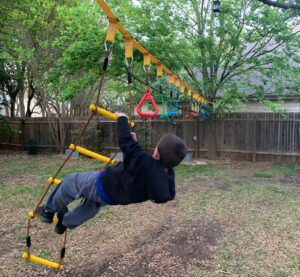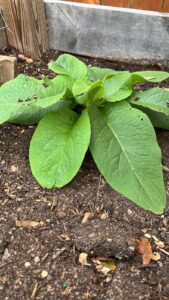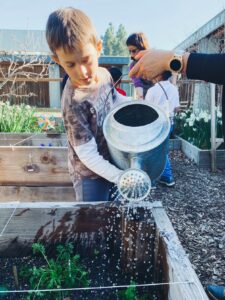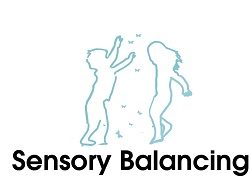How do I know the “allergy season” has begun? My complaints in the clinic are mainly about seasonal allergies… 😉 However, you would be surprised that most people who see me for these complaints are not suspecting it’s allergy related…

what are the main symptoms
When people contact me for help with their allergies, it’s usually because they are experiencing puffy and watery eyes, running nose, congestion and of course – sneezing! But often they complain of having a never ending cold that doesn’t seem to get better, or a headache around their forehead or under their cheeks (some would know it’s their sinuses but some would just say it’s not like their migraine). And another frequent complaint is a cough that seems to be “stuck” and not react to any cough medicine/supplements. Sometimes it’s even a new sleep disturbance that ends up being a reaction to the body reacting to the pollen with allergies.
Why do some people have allergies while others don't?
People seem to suspect it’s allergies when others in their family suffer from the same symptoms, or when it happens in cycles (every spring, or only in the summer…). Some have live in the same place for years but never suffered allergies before so it never crossed their mind that it might just appear from nowhere. Having worked with so many cases of seasonal allergies, I have seen it all! It could appear suddenly, could affect just one family member, and could also come and go.
I myself used to get stuffy for a few hours, sometimes a few days, and even a few months. It wasn’t until I saw a patient of mine who complained about a chronic cold that hasn’t responded to any of her herbs or acupuncture she has been doing while I was on vacation. Upon diagnosing, we learned she was actually sensitive to dust and since there was a big fire and the air quality was so bad, it has been lingering for a few weeks. So we focused our sessions on bosting her immune system so it would better recognize dust for what it is, and not as a “big strong bully”. That is when it hit me, I had the same allergy! However, when my immune system was strong, I would be fine, but when I was chronically fatigued and when I was jet lagged – I would be completely stuffy in the presence of dust.
and it was the same with others I have worked with, so we started focusing on their immune system and specifically towards the pathogen it was recognizing as a “bully”.



Things to do
Our body has a remarkable ability to heal itself and there are so many different ways to help it. Sometimes reducing stress would make a huge difference, sometimes nutrition would do the job, sometimes exercise, and sometimes it would be a new treatment modality we try. But most of the times it would be the combination of things that is right for us. And as a practitioner, I can say for sure that there is no protocol that works for everyone, we each respond differently and therefore should find what works for us!
limit contact with allergen – if possible, on days the pollen is high – try to avoid outdoor activities and use an air purifier indoors.
herbs and supplements – consult with your practitioner in regards to what works for you specifically. Things to consider: Vitamin C, Vitamin D, Zinc, magnesium, moringa, nettle leaf, etc…
Neti Pot – allows you to perform a natural nasal rinse to help remove foreign substances such as pollen before they get the chance to travel to your lungs. Many people report that using a Neti Pot reduces their congestion and improves symptoms such as coughing and sneezing.
Drink water – Keeping proper hydration is very important but during high pollen, when you want to flush out trapped particles from your system you should increase your water intake.
Breathing exercises – Qi Gong, Yoga, Tai Chi, etc.. to focus on the energy of the lungs and boost the immune system
Epsom salt Bath – with the temperature being warm enough for steam but not too hot as to create discomfort. Some love adding essential oils like eucalyptus or lavender and report relief.
Acupuncture/Acupressure – Sometimes the natural actions we seek are not enough and we need some help from a professional that will help diagnose the imbalance in our system and work with the body’s natural ability to heal itself. Getting a diagnosis might be beneficial in helping you tailor the “remedy” of wellness adaptations (nutrition, exercise, herbs…) that would be most suitable for you.
Prepare in advance – If seasonal allergies are something you are familiar with and know when it’s coming. It’s best to boost your immune system before as usually it is easier to prevent ailments than it is to treat them once they occur.
————————————————————————————————————-
Disclaimer: Information and statements made here are for education purposes and are not intended to replace the advice of your doctor. The views and advice expressed in this blog are not intended to be a substitute for conventional medical service. If you have a severe medical condition or health concern, see your physician.
